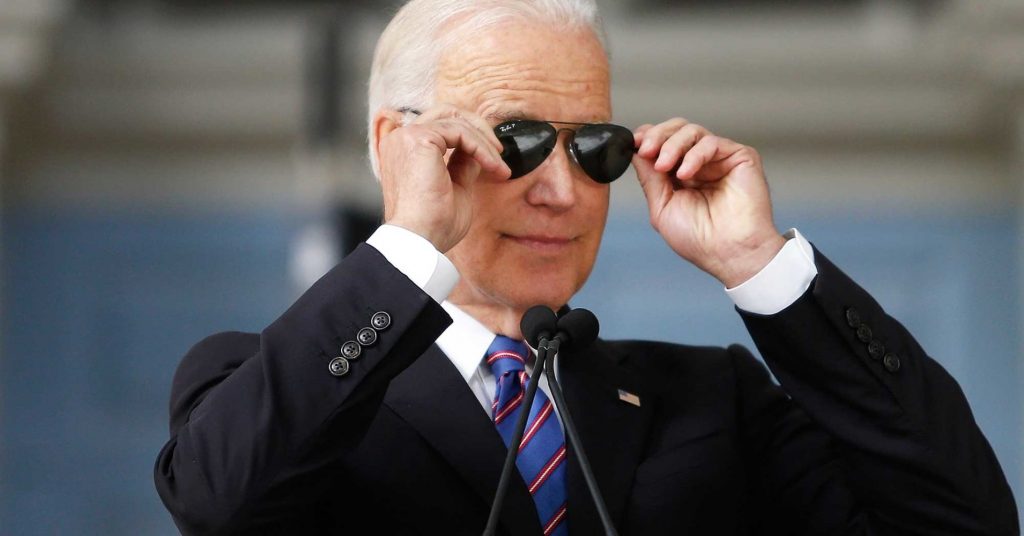Scientists say that, if U.S. President-elect Joe Biden delivers his plan to cut emissions to net-zero by 2050, the world will once again have a chance of keeping climate change in check
The election of Democrat Joe Biden as the next U.S. president puts the world “within striking distance” of limiting global warming to 1.5 degrees Celsius – a key international goal – for the first time, scientists said this week.
In contrast to climate-change sceptic Donald Trump, who last week pulled his country out of the 2015 Paris climate accord, Biden has made curbing planet-warming emissions a priority and plans to put the economy on an “irreversible path” to net-zero emissions by mid-century.
Biden has vowed to lead the United States back into the Paris Agreement as soon as he takes office in late January – a process that would require about a month. His team’s transition website also says he will “go much further than that”.
“He is working to lead an effort to get every major country to ramp up the ambition of their domestic climate targets,” noted the website, which went online after the race was called for Biden at the weekend.
It did not give further details. But Biden’s election campaign plan said that during his first 100 days in office, he would convene a “climate world summit to directly engage the leaders of the major greenhouse gas-emitting nations of the world to persuade them to join the United States in making more ambitious national pledges”.
Climate analysts expect Biden’s presidency not only to give global climate diplomacy a shot in the arm, but also to give the world a realistic chance of meeting the Paris pact’s most ambitious 1.5C warming limit.
Scientists have said that is vital to protecting people, economies and ecosystems from far worse floods, droughts, storms and sea level rise than have already hit at just over 1C of warming.
Bill Hare of Climate Analytics, a partner organisation in the independent Climate Action Tracker (CAT) research project, said Biden’s win could mark “an historic tipping point”.
With Biden’s election, China, the United States, the European Union, Japan and South Korea – representing two-thirds of the world’s economy and over half of climate-changing emissions – would have net-zero emissions commitments for mid-century in place, he said in a statement.
If Biden goes ahead with his plan for net-zero emissions by 2050, it could shave about 0.1C off global warming by 2100, the CAT said.
That – together with an additional reduction of 0.2-0.3C from China’s recently announced goal of becoming carbon-neutral by 2060 – would reduce the tracker’s estimate of end-of-century warming to 2.3-2.4C.
PEER PRESSURE
Johan Rockström, director of the Potsdam Institute for Climate Impact Research, said Biden and his vice president, Kamala Harris, “now have the chance to truly weigh in on tipping the entire world on an unstoppable path towards phasing out fossil fuels”.
“If the U.S. adopts net-zero emissions by 2050, we would have the four largest economic regions in the world aligning with science and showing the path towards a safe, clean and modern future,” he said, referring to the European Union, Japan and China.
Former Australia Prime Minister Kevin Rudd, now president of the Asia Society Policy Institute, urged Biden to restore “a cooperative relationship on climate change” with China, even though warmer ties would likely remain challenging.
Biden’s election will “put every country on notice” that they too must ramp up their Paris targets by next November’s COP26 U.N. climate summit in Glasgow – including countries that have been reluctant to do so like Australia, Rudd said.
2030 TARGET
Climate experts at the Washington-based World Resources Institute said Biden’s government should update the U.S. “nationally determined contribution” (NDC) to the Paris Agreement well ahead of the COP26 conference, which was delayed for a year due to the coronavirus pandemic.
The country’s original climate action plan set a target to cut emissions 26-28% from 2005 levels by 2025, but did not contain a 2030 goal, something many countries are now putting in place.
WRI’s U.S. Director Dan Lashof said Biden should adopt “a well-grounded, but ambitious” 2030 target to cut greenhouse gas emissions in the range of 45-50% below 2005 levels.
That would require the Biden administration to establish strong federal policies that “build on and complement leadership exercised by (U.S.) states, cities and the private sector” during Trump’s term, he wrote in a commentary.
The less ambitious end of the range suggested by WRI is the minimum U.S. reduction that would be consistent with the Paris Agreement goal of limiting warming to 1.5C, he noted.
The higher 50% cut would “do more to help the United States re-establish a position of leadership in international negotiations”, but would almost certainly require Congress to enact significant new climate legislation, which could be tricky if the Senate remains in Republican hands, Lashof added.
“We believe that a bold NDC would be good for citizens, it would be good for competitiveness, it would be good for jobs,” WRI president Andrew Steer told journalists.
“But it has to be done right, it has to be designed well – and we believe this new administration understands how to do that.”

